How an Oncology Aesthetician is Reshaping Men’s Skincare
Lashelle Ullie on self-respect as self-care, men’s grooming — including beards and brows — and the intrinsic glamor of giving back.
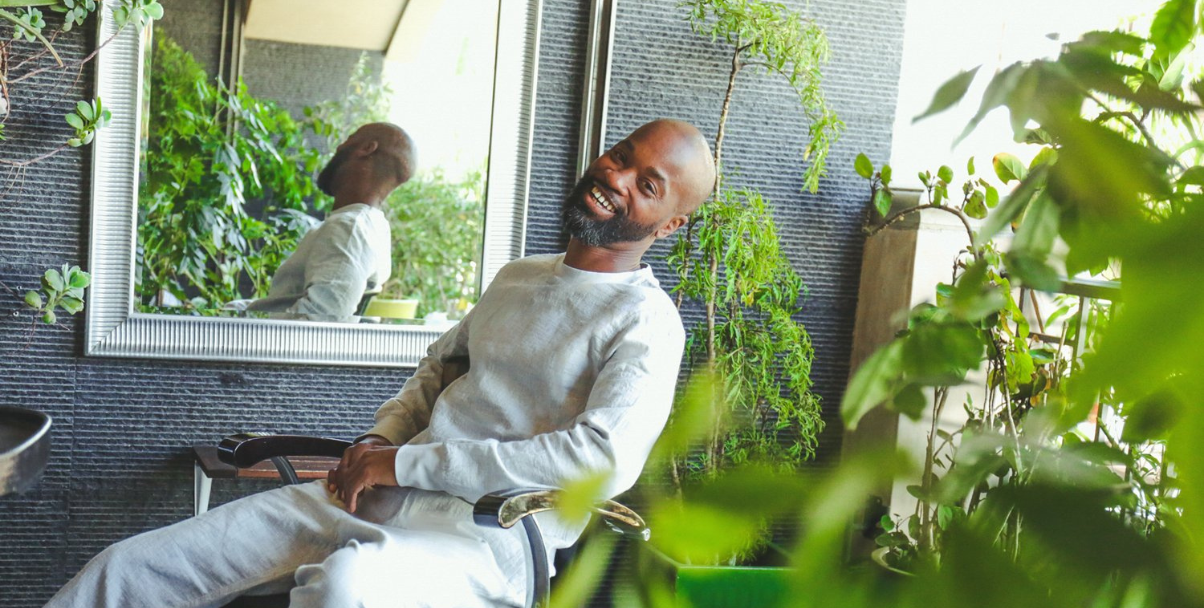
Men and Skincare – An Oncology Aesthetician’s Perspective
There are some people in life that you meet who give you the intellectual satisfaction of conversation that goes way beyond the skin. As was the case with Beverly Hills atelier owner Lashelle Ullie, one of Coralai’s licensed skincare professionals and Advisory Council members. Ullie is a certified oncology-trained medical aesthetician and specializes in ethnic skin, makeup artistry, men’s esthetics/grooming and brow services. Philanthropically, he combines his skincare expertise with his passion for helping those recovering from addition through his foundation I AM BACK.
Within minutes of being on the phone with him for a casual chat, we found ourselves traveling to topics few dare to ever broach: the danger of hypermasculizing men’s skincare, what to look out for when you’re getting a treatment, and how chemotherapy affects the skin and specific treatments he offers as an oncology aesthetician. With a ‘self-respect through self-care’ philosophy, Ullie approaches men’s skincare as a practice that with commitment comes results and that a skincare routine is just as much about the mind as it is the body. We invite you to read below for our candid conversation turned important thought piece on holistic wellness.
Coralai Wellness: How did you get your start in the industry?
Lashelle Ullie: My background began in makeup. I’ve been doing this since I was just a kid. I started right at the ground-level in retail at age 17.
What’s beautiful is that before I held positions at the cosmetic counter as a resident artist, sales artist or account executive, I started out in the stockroom. I know it doesn’t sound glamorous, but when I think about it now, it’s quite full-circle. That hands-on stockroom experience was everything, working with the counter manager, seeing SKUs come in, learning how inventory was managed, merchandising shelves and seeing what was moving and what wasn’t. I got to handle it all.
Looking back, I now have more than 20 years of industry experience. It started with my love of makeup and wanting to help people feel beautiful.
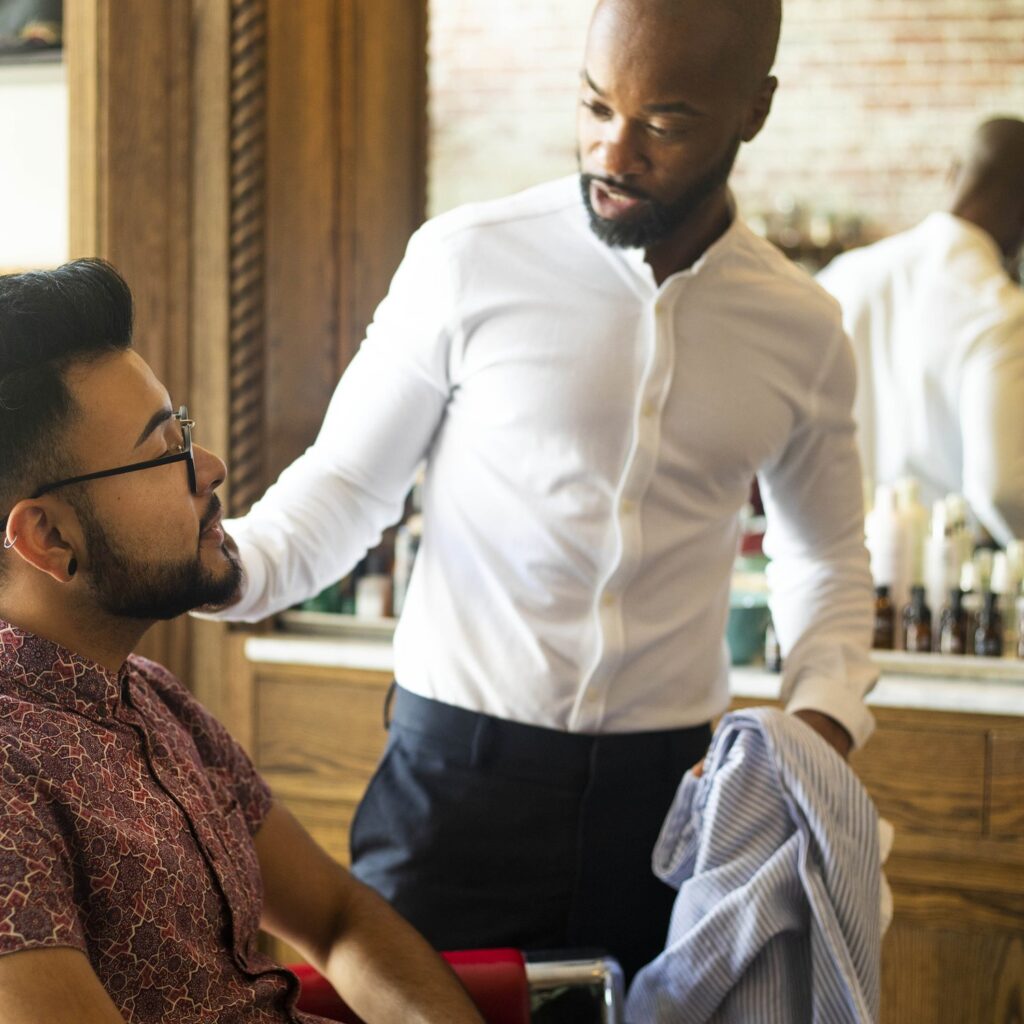
CW: How did working for beauty brands / retailers impact your approach to skincare?
Lashelle Ullie: My portfolio includes work for nearly every cosmetic luxury brand that you can imagine: Estee Lauder, Givenchy, Bobbi Brown, Lancome, Chanel. Then Sephora, when it first launched. This is where I gained much of my bulk training across skincare and haircare. From there Macy’s, Bindles, Sax 5th Avenue to Neiman Marcus.
Of course, I honed my craft and learned about the technique and artistry of makeup, but more importantly, I got to really learn about people in such a unique way. There’s something about the cosmetic floor, it’s very different. I come from New Jersey. We call it the street, right? But, honey, the real street is in cosmetics. I say this jokingly sometimes, but it’s the truth.
“I come from New Jersey. We call it the street, right? But, honey, the real street is in cosmetics. I say this jokingly sometimes, but it’s the truth.”
From selling, commissions, and helping the entire range of clientele come to the counter, you have to be savvy, quick on your feet and truly knowledgeable about trends. What’s more, how to tailor these trends to each individual.
That’s really my gift: people. Finding the human connection. It exists at a therapeutic level.
CW: What other roles have supported your career trajectory?
Lashelle Ullie: From managing counters and years and years of freelancing, I began to work for smaller, startup makeup brands. I’ve worked across the country, from New York, Atlanta, moving to Los Angeles in 2009. I was helping smaller businesses by implementing structures I had learned on the cosmetic floor. I also became an instructor.
Next, I teamed with salon owner and ‘Brow King’ of Beverly Hills Damone Roberts. I did brows, obviously, but this is when I really carried forth my passion for skincare. Damone and I collaborated and he knew I wanted skincare, men’s skincare, specifically, to be my primary focus. My goal was to bring more guys in the door, eventually crossing them over from brow services to esthetics.
CW: What is your skincare philosophy?
Lashelle Ullie: Makeup was my entrypoint but skincare has always been my love. Your skin stays with you forever. It’s true. Some people will get tired of wearing makeup. Maybe you get to a certain age and you don’t want to do it anymore. You have to take care of it. I came to this philosophy from the point of view as a makeup artist; for really beautiful makeup to happen, skincare needed to happen. Everyone can benefit from seeing an esthetician.
And the conversation is changing to now really be inclusive, meaning to include guys and many other communities who have otherwise been left out of the conversation, regarding skincare/wellness/self-care. My mission is to be the bridge for these conversations to happen.
CW: What do you feel is missing from the men’s skincare conversation?
Lashelle Ullie: Education. I try to help men from all backgrounds and ethnicities, transcending how they may identify sexually, their career-path or family dynamic, and regardless of what other issues they may be encountering — mentally, physically or spiritually. Men’s skincare is a great way to do this. We all need to feel human, be cared for and have a sense of community, regardless of gender.
In my opinion, where it starts for men is helping them to feel comfortable in the chair, receiving treatment, seeing results and feeling more like themselves than when they walked in the door. I use their treatment time to generally educate my male clients on the importance of skin health and getting them introduced to preventative routines. Most importantly, it’s about creating a self-caring connection with themselves (and not considering this type of experience or self-care ritual as feminine.)
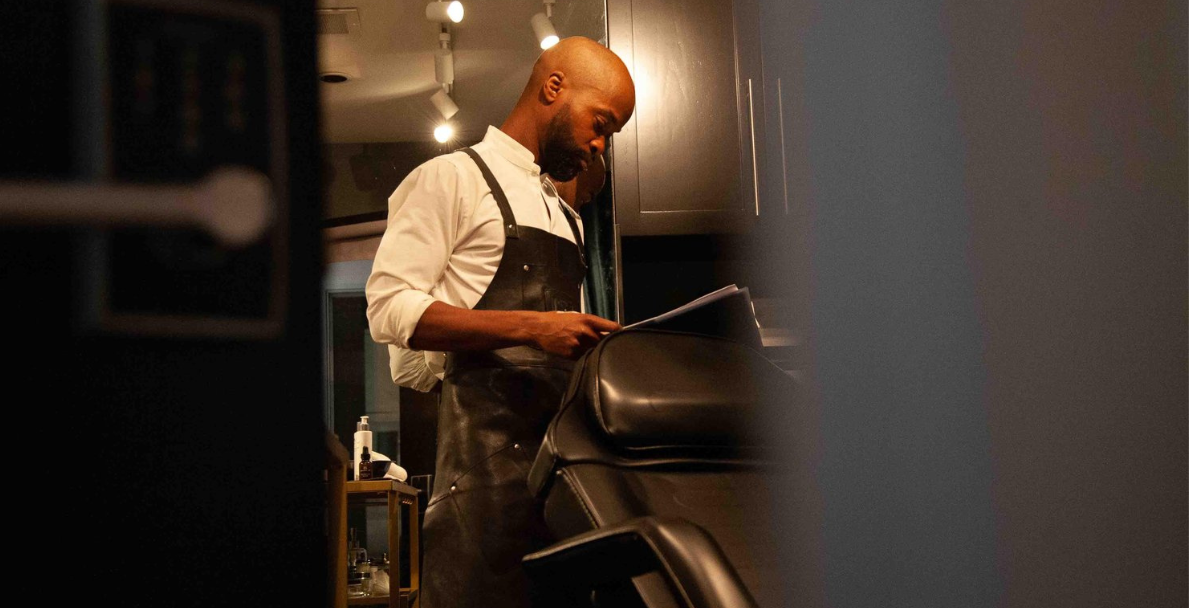
Here’s one way I break it down. You spend money on your suit, your hair, your beard, but you didn’t wash your face today? I stress the need to protect the thing that protects you. It’s about self-protection. Your skin is the largest organ of your body. You should understand how it functions and how to care for it. Now, more and more guys are becoming more open-minded about having a men’s skincare routine.
My mantra: you can’t give your career, your family, your marriage, or whatever, something you’re not willing to give yourself. If you aren’t bringing more relaxation and peace to your mind, practicing self-care, I guarantee it’s showing up somewhere else in your life.
CW: How do you approach home care practices with your male clients?
Lashelle Ullie: I knew more than five years ago that at-home men’s skincare was going to be a big thing.
What I aim to provide is actionable steps to build a routine, a practice. That’s what home care represents. So between treatments, you’re building off of the relaxation of the facial you received. At home and over time is where clients get to see their skin health change.
And one thing about men, which I love, they’re often quite practical. Once they begin a practice, they see the change and the benefits, they tend to stick with it. Once that’s solid, you develop a loyal client. I’ve seen it countless times. Once one experiences looking good and feeling good inside and out, a man can change his perception of self.
I do have to remind them; skincare is not instant gratification. Similar to working out, you can have a one-off weight lifting session to look in the mirror and feel better in the moment or, likewise, get a facial to capture that red carpet glow for a special event. But, if you want to see your body or your skin truly change, it’s a process and commitment to yourself that requires accountability. I can be their accountability partner in term’s of men’s skincare!
Speaking Truth: Interview with oncology aesthetician – Lashelle Ullie
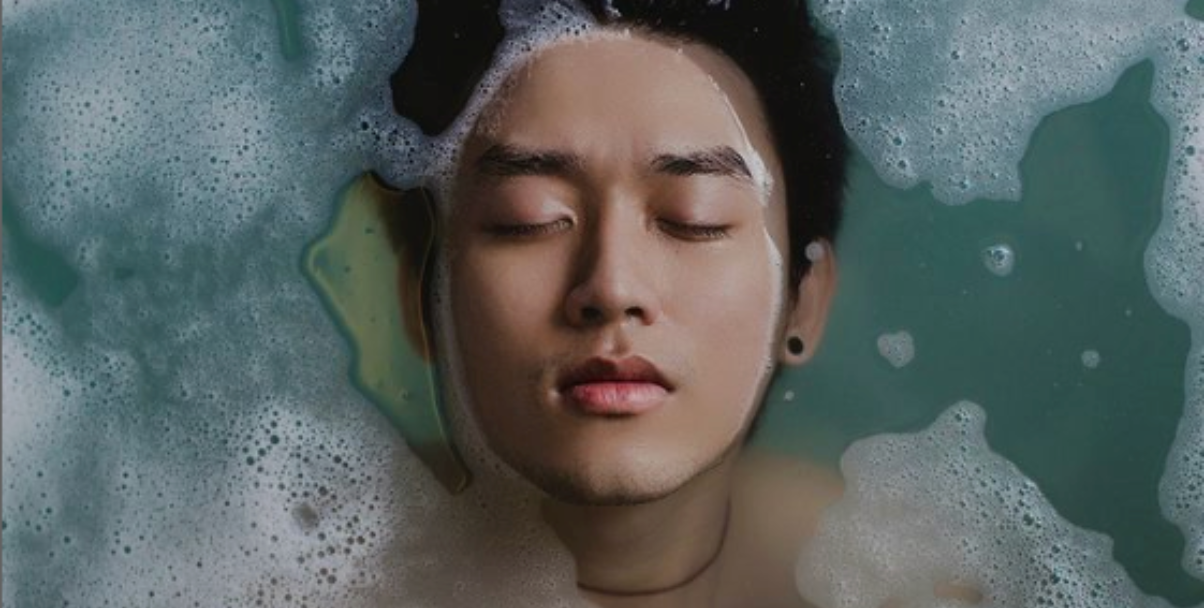
CW: How can this industry better market to men?
Lashelle Ullie: Men’s skincare is here. In a sense, a resurgence of the classic barber shop experience from the forties. This trend is why I opened my own space. Salon 90210.
My dream is to provide an environment where all men can feel safe, relax, learn and ask questions. The industry must begin to do a better job of not painting with a one-size-fits-all brush. We are now moving past insulting, overly masculine ads that attempt to reach men using humorous, fraternity brother lingo. Many men don’t relate. Some are highly sophisticated; some may even be feeling sad. Marketers might try not to downgrade their audience to appeal to them to wash their face. We want all of our emotions taken into consideration in an authentic, vulnerable and humanistic way.
So, when we speak to men in skincare, we now can talk to them just like people. We don’t have to play into these stereotypes, just educate them on the facts and meet them where they are in terms of what they’ll be able to take home and sustain.
“We are now moving past insulting, overly masculine ads that attempt to reach men using humorous, fraternity brother lingo. Many men don’t relate.”
CW: What does it mean to be an oncology aesthetician?
Lashelle Ullie: As a way to help navigate the men’s self-care conversation in a new way, I became licensed as an oncology-trained aesthetician.
By the way, pro tip here. Estheticians (spelled with a ‘e’) typically focus on cosmetic treatments while aestheticians (spelled with an ‘a’) provide services in the medical treatment category. So, as a medical aesthetician with a focus on oncology, I work with men who have been through cancer, chemo treatments, things of that nature. It’s a different perspective as I help relate to their new ‘skin’ normal. This becomes about continuum care, keeping the conversation and support past the treatment room and hospital.
As one can only imagine, having cancer is an extreme tax on the skin. The chemo treatments break down the skin barrier in such a significant way while dehydrating and depleting nutrients. Chemo acne may also be a side effect. The skin can become hyper-sensitive depending on the type of integrative medicines selected for treatment and each individual (and their skin) will react differently. Sometimes, post-treatment, the skin never returns to its previous level of moisture or nourishment. This requires using different products and being vigilant in the space of ingredient toxicity levels.
Today, I speak about the importance of self-care from two perspectives. One, from someone dealing with cancer and how to improve their quality of life post-chemo — this alongside a team of nutritionists and oncologists, because holistically, it all works hand in hand. And two, from the male point of view of someone not going through life threatening illnesses, garnering a similarly holistic mindset in terms of mental health, wellness, fitness, food and spirituality. It’s about getting the complete conversation happening in both arenas.
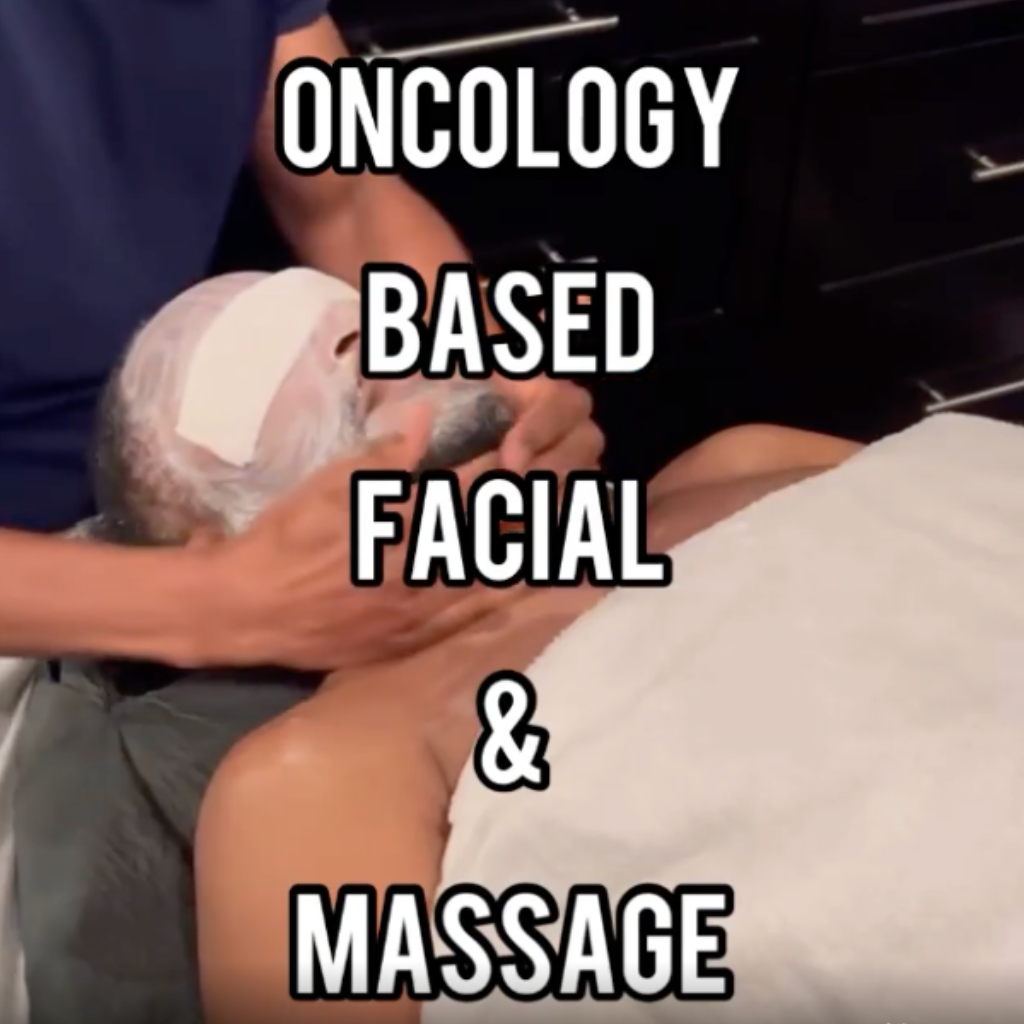
CW: How do you envision the Coralai platform supporting you to better serve your clients?
Lashelle Ullie: This is an end-to-end ecosystem to share with my clients, one that comes full circle and supports me as a provider. The technology is simply amazing; for an individual to receive a skin scan diagnostic backed by artificial intelligence while also being able to book an appointment and track their results over time is beyond.
This could be particularly useful for those receiving hormonal therapies, having a united front that creates a safe place to not only see how their skin is visually changing (first round of treatment compared to sixth round of treatment) but also to consult an expert like me about specific treatment procedures and product safety. The image capture of their face using the computer visioning technology marks moments in time that connects skincare to our everyday lives as humans. Answering ‘what do I need for my skin today?’ and being able to purchase with one click.
As a skincare professional and member of the Advisory Council, it means a lot to me that I can be part of the feedback loop for Coralai as the technology evolves. I support the mission to bring these often overlooked communities into the equation.
I’m hoping the technology helps us to break down walls and fight the algorithm bias as many technology developers aren’t coming from the healthcare/skincare industry. As a skincare professional and member of the Advisory Council, it means a lot to me that I can be part of this feedback loop as the technology evolves. I support the brand’s mission to bring overlooked communities into the equation.
“As a Coralai skincare professional and member of the Advisory Council, it means a lot to me that I can be part of the feedback loop as the technology evolves. I support the mission to bring overlooked communities into the equation.”
CW: What is a skincare trend you are seeing?
Lashelle Ullie: Well, as social media has opened up a whole new world for consumers, providers are perhaps seeing things that may have been out for a while but reaching new audiences, i.e., AHA and BHA peels and microneedling.
For industry insiders, I’m going to say, it’s a layered effect. For example, I provide a treatment called a gentleman engineering treatment, where I do a light microneedling and a 40-60% PAJ or BHA mixed in a mask. These are the types of double modalities that are now trending.
We are doubling down to achieve a more invasive treatment (because as aestheticians, we don’t use lasers). We are doing things like Dermablading and peels at the same time, or radio frequency and microneedling. We are beginning to take two modalities (one you may have experienced before) and beginning to safely combine them in the facial rooms. There’s a disclaimer; you really have to know what you’re doing. For example, one of my specialties beyond being an oncology aesthetician is treating men with ethnic skin. I’ve taken the time to understand how the Fitzpatrick scale works differently across those skin tones and how different ethnicities are affected.
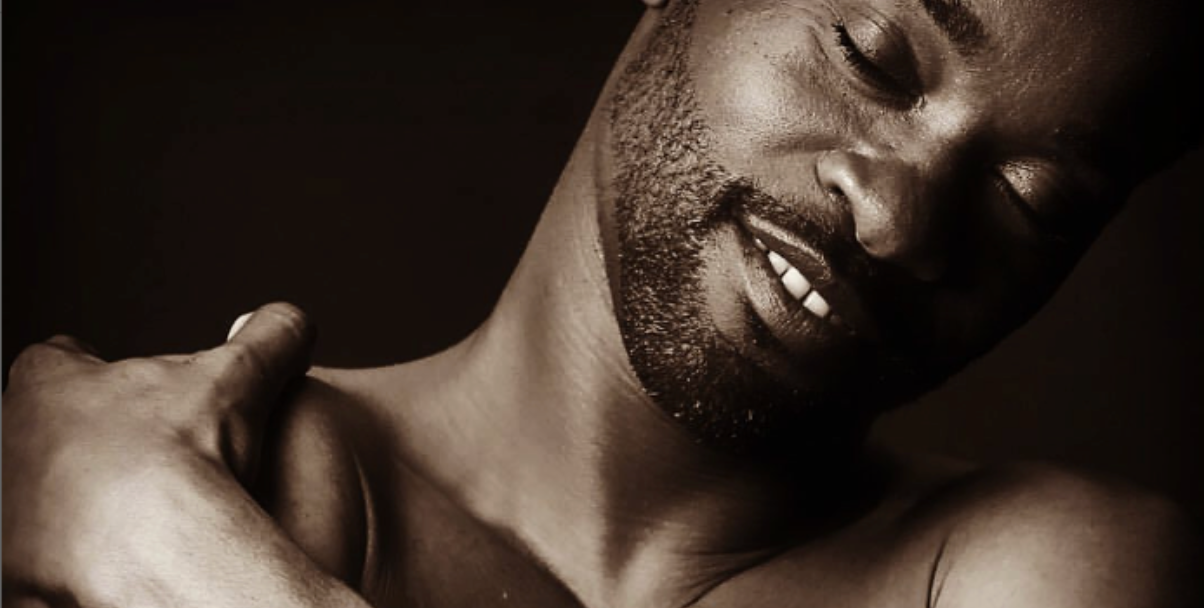
CW: What does the future hold for you?
If I’m honest there’s two things I would like to do. One is based on the lux pop-up concepts you see at film festivals, like Cannes. But, my vision is to have pop-up men’s self-care salons. These will not only cater to VIPS but men from all walks of life — complete with grooming, manicure and skincare services.
The other is larger scale, similar to Refinery in London, being an all-encompassing male salon. Yet, I would like to go a step further and provide mental and physical healthcare, nutrition and spiritual resources. Resources to feed the soul + spirit + mind + body. This approach connects to the known challenge that many men don’t like going to the doctor. What if there was a world where they could live in the barbershop world, but have all these services readily available? One destination to feel self-respect as self-care with a focus on total wellbeing.
